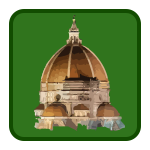Today was supposed to be my day of rhetoric. I’m taking a course via correspondence at TCU this semester in it. In the course, Dr. Enos gave me an assignment for when I visited Athens. I like to call it a university-level scavenger hunt. I had four things to find in the National Archaeological Museum and to use as the foundation for a paper I need to write. For sure I found two great examples of the four. I may have found another (the portrait head of Demosthenes didn’t have an inscription). One, which was supposed to be the first instance of the written Greek, wasn’t on exhibit!
Two or three years ago they closed the museum and remodeled it. The map that I picked up shows that over half of the museum doesn’t have exhibits available to the public. Hopefully the “missing items” on my hunt are in those.
I have a new strategy that worked well doing chronological museums: start with the present and work backwards. Most historians probably cringe hearing that. Their arguments that I don’t appreciate the development and progression have some merit. For me, though, seeing Mycenaen works at the beginning wasn’t working. I was bored! So, I started with the late Romans, retraced to the earliest works, and then went through again chronologically. Since I was a “man with a mission,” it was much easier for me to see the developments by skimming the descriptions and spending most of my time with the works that are famous and prominent.
I left the museum frustrated since my scavenger hunt wasn’t much of a success. One of the other favors Dr. Enos asked was for me to get the listing of holdings for a smaller museum in the vicinity. That visit made my day! The Epigraphical Museum (the one that specializes in preserving and cataloguing ancient texts) was without any visitors. The content is exactly what I like looking at. Sculptures and pottery are great, but looking at texts appeals to me more. There’s more information. For me, there’s more content on and in the forms the texts are written on than in the sculptures. Trying to decipher stone engravings is better than admiring and critiquing how they sculpted certain muscles.
I didn’t have time to tour the museum (that’s planned for Saturday), but I did make it to the Agora. The Agora, the gathering place in Classical and Hellenistic Greece (more in Hellenistic since Augustus was a major patron) served as the center of public life. Now all that’s left is a bunch of stones (in some ways the story of all Greece), but with the recreated Stoa, I could definitely tell why people would want to spend time there. The speeches of the rhetors and the teachings of the philosophers took place where I was standing — around two and three millennia before.
Other than all of the sites, the morning’s highlights are the souvlaki I had for lunch (it’s going to be a daily lunch) and my ride on the Metro. Athens’ brand new subway is incredible. It’s cheaper than any other I’ve been on (the Metro in DC, the T in Boston) and it’s supposed to cut out a lot of the smog production once more of the Athenians begin using it. The smog, while bad for the preserving the Acropolis and everyone’s lungs, does make pretty colors in the sunset. Nevertheless, the convenience of the subway beats out adding artificial colors to the sunset.


 Oh well, I’ll prevail in this cookie dilemma.
Oh well, I’ll prevail in this cookie dilemma.





